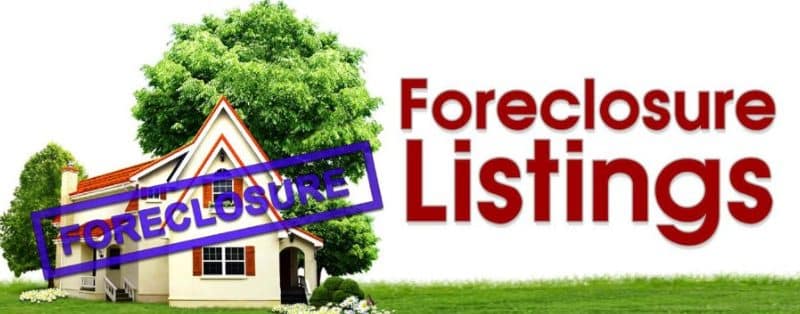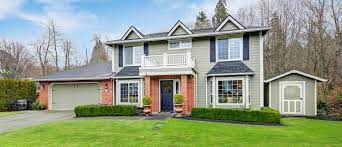Foreclosure listings are distinct from ordinary listings in that they necessitate additional steps for agents to obtain. Hence, working directly with lenders or government agencies, completing broker price opinions, networking with asset managers, and developing special skills in the industry are just a few of the actions that can be taken. This post will take you through free foreclosure listings, pre-foreclosure listings, home foreclosures listings, and bank foreclosure listings.
Foreclosure Listings for Free
If you want to start a home-selling business, you might want to try buying foreclosed homes. It follows the buy low, sells high principle. So you can purchase a foreclosed home for a low price, make the necessary upgrades, and sell at or above market value.
Are you looking for foreclosed properties in your area? Consult your county, town, or city for more information. They may have local foreclosure listings for free on their websites or through other sources. However, most major banks (we’ve included a few) have a wide range of web options for finding foreclosures:
For free Foreclosures listing Sites
#1. Foreclosure Center on Zillow. The famous website, which both house sellers and purchasers make use of, has its own foreclosure search engine. You can create your own search strategy, filtering by price or region.
#2. The Equators provides free foreclosure listings, as well as short sales, open market listings, and properties available through the Hubzu auction procedure.
#3. HomePath.com is a website that helps people find their way home. HomePath.com, which is owned by the Federal National Mortgage Association, or Fannie Mae. Provides free lists of thousands of houses in foreclosure that Fannie Mae is selling.
#4. Foreclosures on Realtor.com. Similarly, Realtor.com, which both buyers and sellers of new homes make use of, can assist you in finding foreclosures. You can narrow down your results by using a zip code and/or a city. While we’re on the subject of Realtors, you can also search for foreclosed properties directly with local real estate businesses and their agents.
#5. Wells Fargo REO properties. You should note that Wells Fargo does not sell these properties directly. You’ll need to get in touch with the listing agents or someone else who is familiar with the property.
#6. HomeSteps.com. This website is where you may learn how to take your first steps. The Federal Home Loan Mortgage Corporation, or Freddie Mac, owns this website. It’s also a database of foreclosed properties that Freddie Mac is selling to investors or potential buyers.
#7. CitiMortgage. You can find the list of Citigroup’s properties or foreclosures on this website. Potential purchasers should contact the listing agent for the property they want to buy.
#8. Foreclosure by Bank of America. Users can search for real estate-owned or bank-owned foreclosed properties using zip codes or other techniques on this site.
Government websites with foreclosure listings
#1. HomeSales.gov is a government-run website that helps people sell their homes. HomeSales.gov is another federal government website for finding foreclosures. Of course, these are previously owned single-family residences that were acquired by the federal government by public auction or other means. According to the website, buyers must interact with a real estate agent, broker, or servicing representative to submit an offer or bid.
#2. HUD.gov is the official website of the United States Department of Housing and Urban. The Department of Housing and Urban Development bought one-to-four unit residential properties from foreclosure actions on FHA-insured mortgages. Thereby making them available to potential investors and other homebuyers.
Read Also: OPEN LISTING AGREEMENT: Definition and Everything You Need to Know (Updated!!!)
#3. USDA-RD/FSA Properties. This webpage lists sites from the US Department of Agriculture’s Rural Development and the USDA’s Farm Service Agency. A modest number of single- and multi-family residences, farms, and ranches can be found here. To place a bid, buyers must deal with a real estate agent or broker. Which means they will have to pay a commission.
#4. Single-family real estate is owned by the Federal Housing Administration (FHA). This site is also for the Department of Housing and Urban Development in the United States, and it covers properties held by the government. When the Federal Housing Administration pays a claim to a bank or other lending institution on a foreclosed property that was originally funded with an FHA-insured mortgage, these single-family residences appear on the site.
Pre Foreclosure Listings
What Does the Term “Pre-Foreclosure” Imply?
The term “pre-foreclosure” refers to the period after the property owner has received a Notice of Default, but before the property has been posted for sale at a pre-foreclosure auction. Although purchasing a pre-foreclosure can be difficult, investors typically find that it is well worth the effort because they can often be purchased for less than market value.
The Difference
A pre-foreclosure listing and a property that has gone into foreclosure are two different things. When a homeowner defaults on their mortgage payments, the property goes into foreclosure. As collateral, the lending institution takes possession of the property. When a property goes into foreclosure, the lender will relist it for sale, usually at a lower price. As previously stated, a pre-foreclosure process occurs when the owner has received a default notice but has not yet been foreclosed upon. As a result, pre-foreclosure homes aren’t always for sale until they’ve officially entered the foreclosure process. Investors who locate owners at the pre-foreclosure stage have the advantage of negotiating a bargain before the property is posted on the market.
Making a bid on a pre-foreclosure home is an art form, and investors must pay close attention to the current owner’s cues to figure out their approach. Some owners may be ready to sell right away, while others may be in denial and refuse to sell at all. Regardless, buying the property directly from the homeowner and offering to make up the back payments on their mortgage is the simplest approach to make an offer. Investors should keep in mind that distressed sellers are common; providing a fair solution to help the present owner avoid foreclosure can help deliver beneficial results.
Lastly,
Pre-foreclosure investing is a popular approach among investors for a variety of reasons. The key motivators include structuring arrangements that benefit the investor while also assisting the homeowner in avoiding foreclosure. Negotiating property agreements before they reach foreclosure auctions and listings can also help investors get a better deal. While locating pre-foreclosure properties and negotiating with the owner might be difficult. Many investors believe the payout is well worth the effort.
Home Foreclosures Listings
The most appealing feature of home foreclosures listings is, of course, their reduced price, often much lower than comparable properties in the same region (referred to as “comparables” or “comps” in broker jargon). The majority of foreclosures are sold at a significant discount to market value, with higher discounts in other areas. Further, additional savings may be available in the form of smaller down payments, lower loan rates, or the removal of appraisal fees and some closing costs.
Understanding Home Foreclosure Listings
Finding a foreclosed home for sale has never been easier. There are a lot of websites that specialize in them. Pre-foreclosure, short sale, sheriff’s sale, and real estate held are all examples of foreclosures. Hence, the reduced cost of a foreclosed home is a significant benefit.
Moreover, the potential for a home to be in poor condition, the length of the purchase process, and competition from professional flippers are all negatives. Foreclosed properties might take advantage of a number of government-backed financing options.
Multiple-listing service (MLS) publications and websites, online real estate searches, bank offices and websites, and local newspapers are all good places to look for home foreclosure listings/properties. Property that is being foreclosed on may not be featured in local multiple-listing systems; instead, it may simply be noted in the property description.
A more direct approach is to use one of the many websites that specialize in home foreclosure listings and properties, such as Fannie Mae’s HomePath.com. Some banks, such as Bank of America, provide sections dedicated to assisting you in your search for a foreclosed home.
Lenders are increasingly selling seized assets through real estate agents, so don’t be afraid to inquire about chances with a real estate broker or agent. Some real estate agents specialize in the sale of foreclosed homes.
Bank Foreclosure Listings
Foreclosures are properties that are owned by the government, such as REOs or banks, and they have the potential to be an affordable option for the right buyers. Hence, Bank of America has resources, tools, and mortgage options to assist you to understand more about home foreclosures and make the process of buying a bank foreclosure easier. If you’re looking for real estate-owned homes for sale, look through Bank of America’s real estate-owned listings.
If you’re buying from a bank foreclosure listings, you’ll need to hone your negotiating abilities by making a lowball offer on the home you want. Banks with a large inventory of foreclosed properties will be more willing to bargain5 over the price. The longer the bank has owned the property, the more likely it is to consider modest offers seriously. If the property you’re bidding on is located in a region with a high foreclosure rate, you should probably make your initial bid at least 20% below the current market price, if possible even more.
You’re in an excellent position if you can pay cash for the property and any necessary upgrades. That’s why some buyers form partnerships with outside investors who can assist them on the front end while also sharing any gains when the house is resold. Cash deals account for a significant share of REO sales.
Buying from a Bank Foreclosure Listings: Tips for Bargaining
Get in contact with the bank, once you’ve identified some bank foreclosure listings that interest you and hired a buyer’s agent.
If the home is relatively new to the market, the bank may not be willing to budge much from the asking price. If you make an offer on a home that has been on the market for more than 30 days, you will have more negotiating power.
You’ll have more clout after 30 days.
You should expect the following during this procedure:
#1. Purchase “as is”: You will most likely be asked to purchase the home “as is,” which means it may or may not be in decent condition. Make your offer conditional on the completion of a home inspection.
#2. When interacting with the bank, you may find yourself waiting for a long time. After prequalifying for a loan, the bank may take up to 10 days to react to your offer. Wait another 30 days if the bank refuses to bend and you receive an offer rejection. Resubmit your initial offer after that.
Final Thoughts
Foreclosed properties can appear to be very enticing on the surface. Costs, on the other hand, can be highly unpredictable, and underlying deterioration can make a property unappealing. The buying process is often slow, which may cause buyers to second-guess themselves, while high demand for tempting foreclosed properties may drive some potential buyers away.
With all of this in mind, foreclosed properties can be fantastic bargains. Buyers have a one-of-a-kind opportunity to pay less than market value for properties that they would not otherwise be able to afford. Savings on the acquisition side increase the possibility of the buyer receiving asset appreciation, as well as a return on their investment if they sell in the future. If done correctly, buying a foreclosed home can provide a buyer with a lot of advantages for years to come.
Frequently Asked Questions
How do lenders foreclose on property owners?
Lenders foreclose on properties in accordance with the laws of the state in which they are located. It is necessary to follow either a “judicial” or a “non-judicial” foreclosure procedure. Mortgages are used to document property ownership in states that follow the judicial method, which requires lenders to file a court case to prove default before foreclosing. States that use deeds of trust use a non-judicial approach that avoids the need for a court hearing. Non-judicial foreclosures can be completed in as little as 30 days. Because the foreclosure proceeding must be approved by the court, judicial foreclosures can take substantially longer.
Can people make money investing in foreclosures?
Definitely! People like you are drawn to the opportunity afforded by dealing with foreclosures because they can frequently purchase the properties at rates far below market value. Purchasing homes at bargain prices is the most certain and quickest approach to make money in real estate. Furthermore, many landlords can buy and rent foreclosures, resulting in positive cash flow and long-term capital building.
- FORECLOSURE ATTORNEY: Overview and Fees (Updated!)
- Real Estate Trends: Comprehensive Market Trends 2021
- Property Management Business: All You Need to Start From Scratch (+ a Workable Model)
- HOUSE POOR: Best Easy Guide to Buying a House Poor Credit (+ Free Tips)
- HOUSING RATIO: How to Calculate Housing Ratio with Ease (+ Free Tools)






